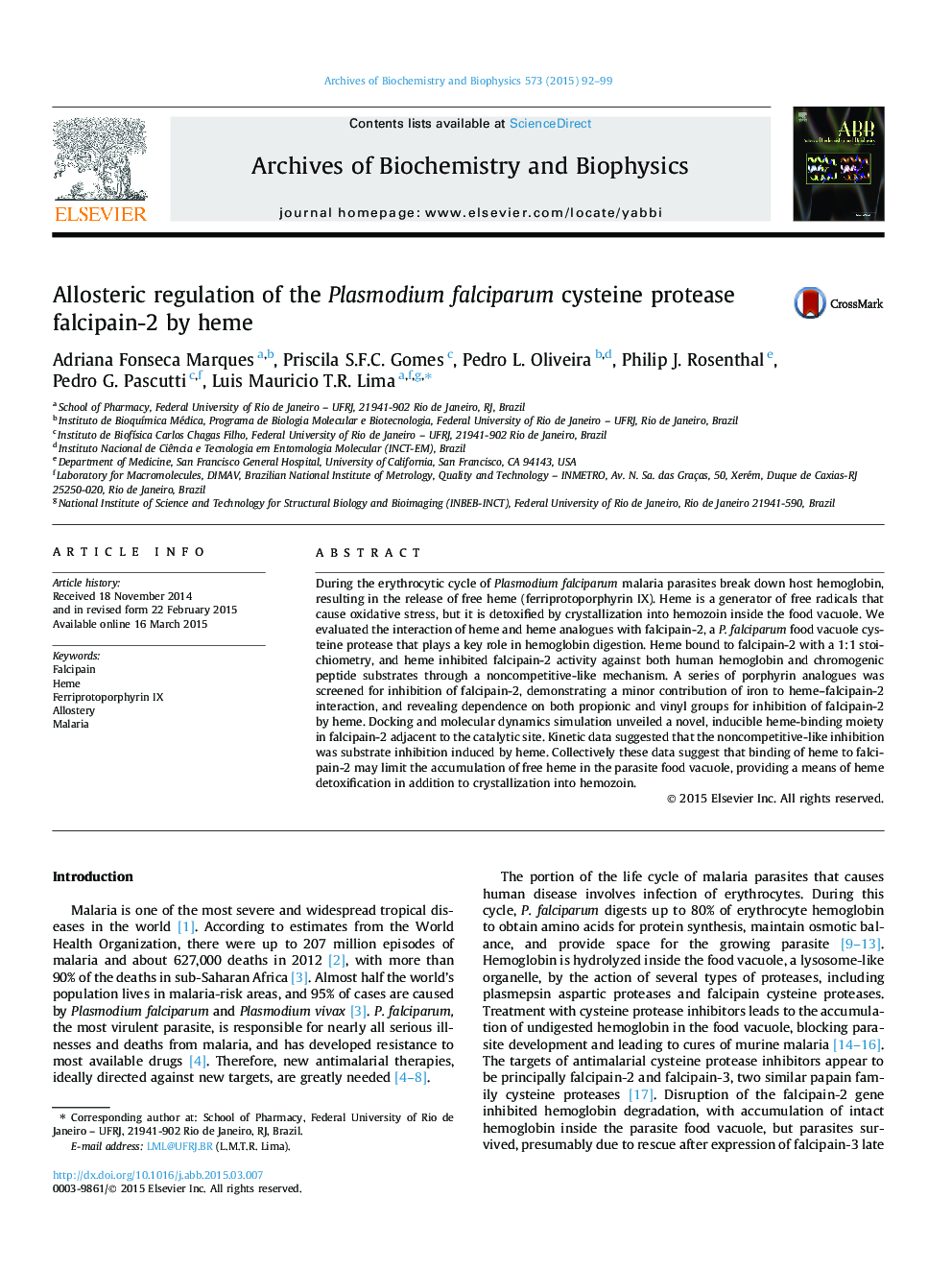| Article ID | Journal | Published Year | Pages | File Type |
|---|---|---|---|---|
| 1924958 | Archives of Biochemistry and Biophysics | 2015 | 8 Pages |
•The malaria parasite depends upon aminoacids from hemoglobin during its erythrocytic cycle.•Hemoglobin digestion releases toxic, pro-oxidant heme.•Heme perform bound to falcipain-2 with a 1:1 stoichiometry.•Heme induces non-competitive inhibition of falcipain-2.•Falcipain-2 inhibition by heme might be a control-point allowing its crystallization into hemozoin.
During the erythrocytic cycle of Plasmodium falciparum malaria parasites break down host hemoglobin, resulting in the release of free heme (ferriprotoporphyrin IX). Heme is a generator of free radicals that cause oxidative stress, but it is detoxified by crystallization into hemozoin inside the food vacuole. We evaluated the interaction of heme and heme analogues with falcipain-2, a P. falciparum food vacuole cysteine protease that plays a key role in hemoglobin digestion. Heme bound to falcipain-2 with a 1:1 stoichiometry, and heme inhibited falcipain-2 activity against both human hemoglobin and chromogenic peptide substrates through a noncompetitive-like mechanism. A series of porphyrin analogues was screened for inhibition of falcipain-2, demonstrating a minor contribution of iron to heme–falcipain-2 interaction, and revealing dependence on both propionic and vinyl groups for inhibition of falcipain-2 by heme. Docking and molecular dynamics simulation unveiled a novel, inducible heme-binding moiety in falcipain-2 adjacent to the catalytic site. Kinetic data suggested that the noncompetitive-like inhibition was substrate inhibition induced by heme. Collectively these data suggest that binding of heme to falcipain-2 may limit the accumulation of free heme in the parasite food vacuole, providing a means of heme detoxification in addition to crystallization into hemozoin.
Graphical abstractFigure optionsDownload full-size imageDownload high-quality image (158 K)Download as PowerPoint slide
